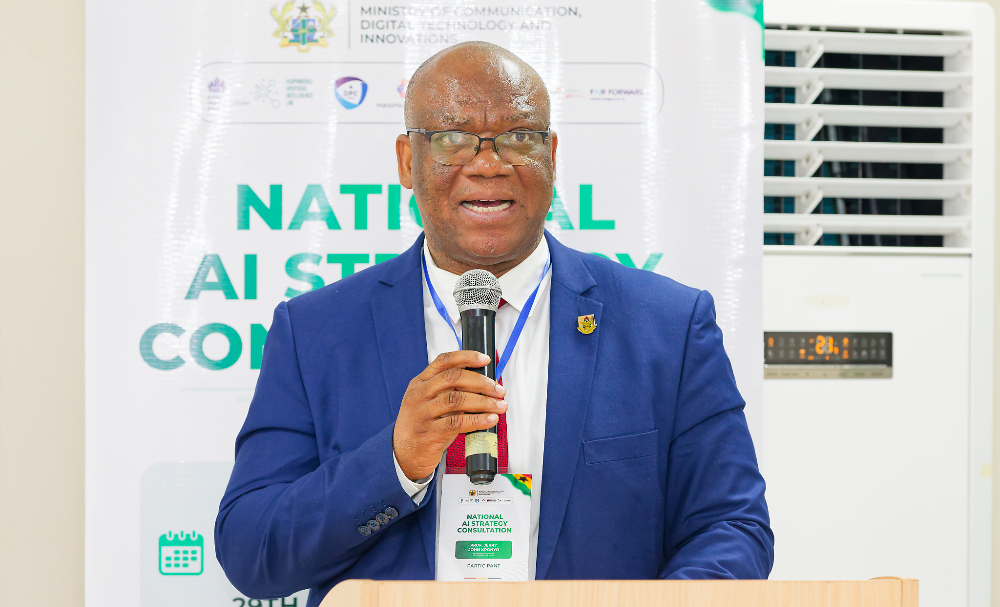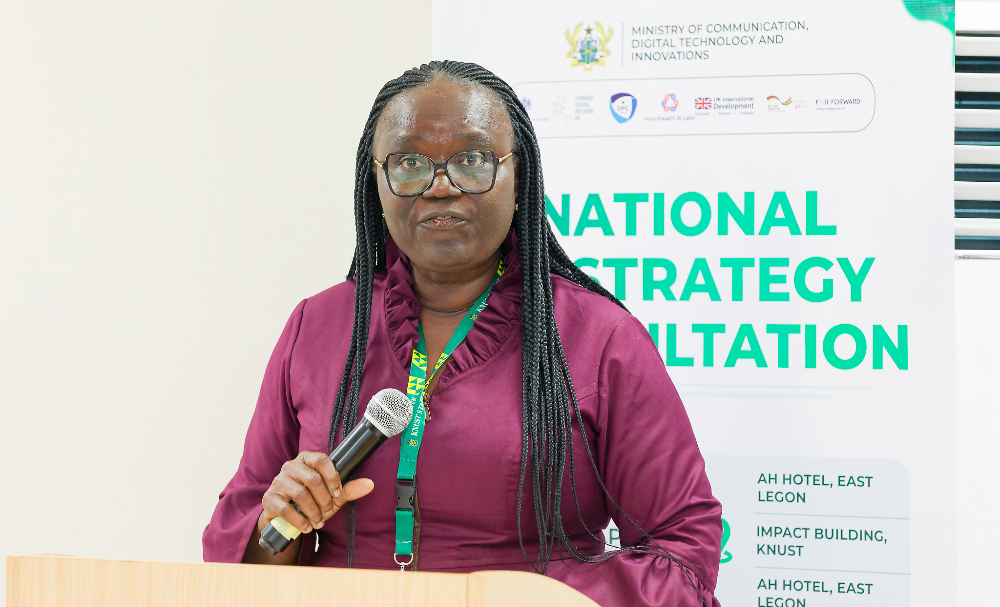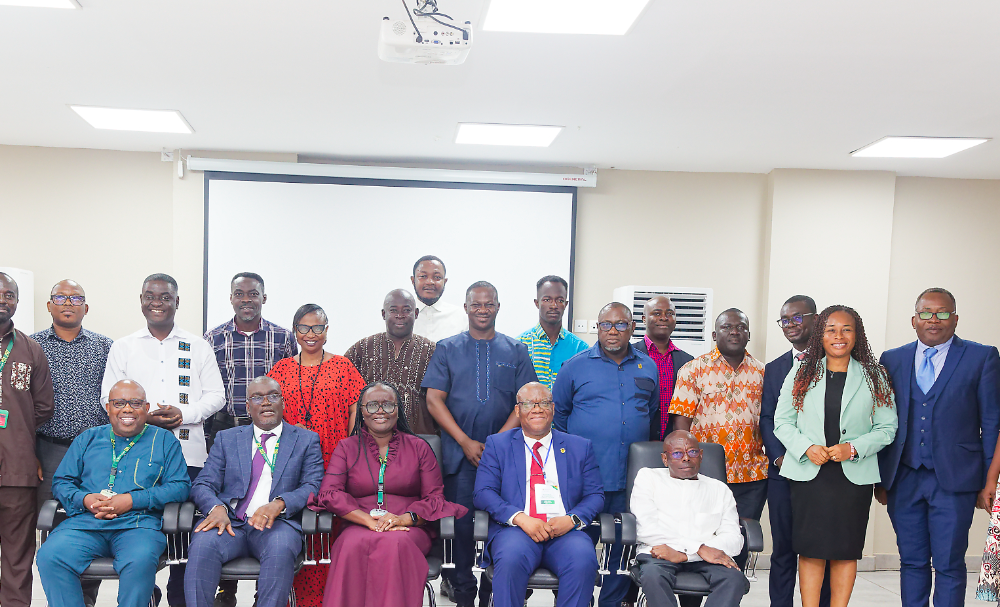The Kwame Nkrumah University of Science and Technology(KNUST) has convened the second national consultation on Ghana’s draft Artificial Intelligence (AI) Strategy. This meeting builds upon an initial consultation with technologists and AI creators, further involving academia in shaping the nation's AI future.
Held in Kumasi, the consultation brought together representatives from academia, government, and international development partners to deliberate on the evolving framework guiding AI adoption and governance in Ghana. The strategy is expected to be finalised by June 2025.

Leading the engagement, Professor Jerry John Kponyo, Principal Investigator of the Responsible AI Lab (RAIL) at KNUST, presented on the strategic pillars of the draft AI framework.
He proposed key initiatives such as an “AI-ready Ghana” programme, expanded AI education and training, stronger partnerships with cloud service providers, and enhanced national data infrastructure.
He also announced plans to establish a Responsible AI Office to oversee implementation and ensure adherence to ethical standards.

KNUST Vice-Chancellor, Professor (Mrs.) Rita Akosua Dickson, highlighted the university’s pivotal role in shaping Ghana’s digital transformation.
She reiterated the need to develop a competent AI workforce and announced the launch of an “AI in Education” Summer School in October 2025, as part of KNUST’s broader commitment to national development through technology.
“This consultation brings together the brightest minds and critical stakeholders to chart a strategy that is all-inclusive, forward-thinking, responsible and grounded in Ghana’s unique developmental context,” she remarked.
Representing the Ministry of Communications and Digitalisation, Dr. Arnold Karvaapuo, Acting Director of Data Protection Commission described the AI strategy as “a blueprint for Ghana’s digital future,” anchored on national priorities.
Mr. Elikplim Sabblah, Technical Advisor for GIZ’s FAIR Forward initiative, reaffirmed GIZ’s continued support for Ghana’s digital journey and praised the insightful contributions during the consultation.
International development partners, including Mr. Johnson Masagotin Singir from the British High Commission in Accra, expressed enthusiasm for Ghana’s AI vision and underscored the critical role of academia in promoting ethical and inclusive AI development.
Mr. Darlington Akogo, CEO of Mino Health AI Labs, proposed the creation of a national AI fund between $500 million and $1 billion to catalyse this growth.
Participants underscored the need for inclusive AI policies, capacity building through existing institutions, improved data governance, and the preservation of cultural heritage through AI technologies.

















